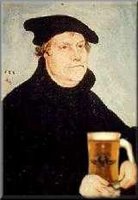Christian Use of Drugs and Alcohol
Q: I have a few quick questions. 1) Is smoking marijuana against our religion? If so, why? It’s a naturally grown plant. 2) If marijuana is against our religion, then isn’t alcohol as well, and does that mean no member of clergy should ever recreationally drink alcohol? 3) God will always forgive me right? It just seems so hard to keep a sin free life and I do try but it wasn’t until recently I discovered these activities could be against my religion, and religion comes above all else in my life. I just wouldn’t understand why these things if done responsibly could be against our religion.
 A: Smoking marijuana is not, of itself, against Christian teaching, unless you’re absolutely convinced that its harms outweigh its benefits. We might debate these things, asking if it’s a carcinogen, if it decreases concentration, enthusiasm, and initiative, and a host of other questions. Yes, it’s “naturally grown,” but so is poison ivy. Coca leaves and opium poppies each grow naturally. On their own, they can produce certain mind-altering effects; with human alterations, they yield cocaine or heroin. Yet even if we decide on our own that marijuana is all right, that doesn’t automatically give us the right to use it.
A: Smoking marijuana is not, of itself, against Christian teaching, unless you’re absolutely convinced that its harms outweigh its benefits. We might debate these things, asking if it’s a carcinogen, if it decreases concentration, enthusiasm, and initiative, and a host of other questions. Yes, it’s “naturally grown,” but so is poison ivy. Coca leaves and opium poppies each grow naturally. On their own, they can produce certain mind-altering effects; with human alterations, they yield cocaine or heroin. Yet even if we decide on our own that marijuana is all right, that doesn’t automatically give us the right to use it.Even if we disagree with them, God holds us to the laws of our governments. So when our nation declares something illegal, we are bound by God to obey the law, unless doing so would cause us to sin. He says through the apostle, “Let every person be subject to the governing authorities. (Romans 13:1)” Christians may work to change what they perceive are bad laws but we are not allowed or encouraged to break laws because we think they are bad.
 As for alcohol, it, like marijuana, comes from plants. Yet often the prime reason for drinking it is not to significantly alter one’s senses but rather to relax someone or to enhance enjoyment of food or of a social setting. God sends two messages about drinking throughout the pages of Scripture. On one hand, He condemns the abuse of alcohol. He speaks strongly against drunken misbehavior, brawling, or drinking until one is unconscious in order to blot out problems. Again from Romans, we read the apostle: “Let us walk properly as in the daytime, not in orgies and drunkenness, not in sexual immorality and sensuality, not in quarreling and jealousy. (13:13)” As an aside, we may properly apply the warnings against drunkenness and the accompanying irresponsibility to any substance that alters our mental state, marijuana, peyote, or heroin.
As for alcohol, it, like marijuana, comes from plants. Yet often the prime reason for drinking it is not to significantly alter one’s senses but rather to relax someone or to enhance enjoyment of food or of a social setting. God sends two messages about drinking throughout the pages of Scripture. On one hand, He condemns the abuse of alcohol. He speaks strongly against drunken misbehavior, brawling, or drinking until one is unconscious in order to blot out problems. Again from Romans, we read the apostle: “Let us walk properly as in the daytime, not in orgies and drunkenness, not in sexual immorality and sensuality, not in quarreling and jealousy. (13:13)” As an aside, we may properly apply the warnings against drunkenness and the accompanying irresponsibility to any substance that alters our mental state, marijuana, peyote, or heroin.Yet in the Scriptures, God also not only allows but even encourages responsible drinking. Several cups of wine were drunk as part of Passover each year by all devout Israelites. Jesus certainly would not have directly contributed to anyone’s sinful behavior, yet He changed water into wine — a truly superb wine, that the guests could truly enjoy (see John 2:1-11).
 Later, as He prepared to complete His battle against sin, death, and devil on Calvary, He chose to give His body as our food in the eating of bread and His blood for drink in the drinking of the wine in Holy Communion (see Matthew 26:26-29; Mark 14:22-25; Luke 22:14-22; 1 Corinthians 11:23-26). So within the boundaries of good judgment and responsible drinking, God not only allows but encourages and blesses the use of wine. Some might argue that this excludes distilled beverages and beer. Indeed, for purposes of the Lord’s Supper, it does. But if drinking doesn’t lead to domestic strife, drunk driving, loss of job, or other ills, since it is legal by national law, Christians may consume whatever alcoholic beverages they desire.
Later, as He prepared to complete His battle against sin, death, and devil on Calvary, He chose to give His body as our food in the eating of bread and His blood for drink in the drinking of the wine in Holy Communion (see Matthew 26:26-29; Mark 14:22-25; Luke 22:14-22; 1 Corinthians 11:23-26). So within the boundaries of good judgment and responsible drinking, God not only allows but encourages and blesses the use of wine. Some might argue that this excludes distilled beverages and beer. Indeed, for purposes of the Lord’s Supper, it does. But if drinking doesn’t lead to domestic strife, drunk driving, loss of job, or other ills, since it is legal by national law, Christians may consume whatever alcoholic beverages they desire.However, if you cannot drink without getting drunk, won’t drive sober, lose time from work, or can’t remember what you do when you drink, then you are abusing a gift from God. If you cannot restrain, then abstain. Should you like to read more on this topic, please see Alcohol, Christianity, and Truth at Pastor Larry Beane’s Father Hollywood blog.
As for your third question, God does forgive all our sins. However, He also warns us against using this as an excuse. Paul asks and answers the root question in Romans 6:1-2, “Are we to continue in sin that grace may abound? By no means! How can we who died to sin still live in it?” The Christian desires to lead a holy life, which includes both legal and responsible use of any and all drugs. You express your concern about intentionally sinning by using two different drugs. Yet because our nation allows one and disallows the other, we cannot use the excuse that “If alcohol is okay, so is marijuana.”
 Finally, even if something is permitted by both God and government, is using it the preferred thing to do? Will my drinking (or smoking pot or taking peyote or smoking cigarettes) bring harm to me or another? Will it cause another person (Christian or not) to sin or could it bring Christianity to shame? Much of what 1 Corinthians 10 says helps us make decisions about what we put into our bodies. Paul sums up the Christian attitude in verse 23, writing, “‘All things are lawful,’ but not all things are helpful. ‘All things are lawful,’ but not all things build up.”
Finally, even if something is permitted by both God and government, is using it the preferred thing to do? Will my drinking (or smoking pot or taking peyote or smoking cigarettes) bring harm to me or another? Will it cause another person (Christian or not) to sin or could it bring Christianity to shame? Much of what 1 Corinthians 10 says helps us make decisions about what we put into our bodies. Paul sums up the Christian attitude in verse 23, writing, “‘All things are lawful,’ but not all things are helpful. ‘All things are lawful,’ but not all things build up.”Of course, here Paul speaks of God’s Law, not man’s, when saying, “All things are lawful.” And as we’ve read, even if God allows something but man forbids it, we bind ourselves to man’s law in loving obedience to God. Therefore, if it is unlawful to our government, it becomes unlawful to Christian citizens. The only times I think we should consider making exceptions are those where obeying the law of the land would cause us to disobey the Law of God. Before acting, we must be certain that such disobedience honors God and is truly the right course of action.
For a bit more, you might also read Two Wines? Too Much! and follow its links to earlier posts.
Scripture quoted from The Holy Bible, English Standard Version™, © 2001 by Crossway Bibles.
Send email to Ask the Pastor.
Walter Snyder is the pastor of Holy Cross Lutheran Church, Emma, Missouri and coauthor of the book What Do Lutherans Believe.
Technorati Tags: Holy Communion | Lord’s Supper | Communion | alcohol | wine | marijuana | drugs | Christianity | all things are lawful | drunkenness | intoxication

0 Comments:
Post a Comment
<< Home